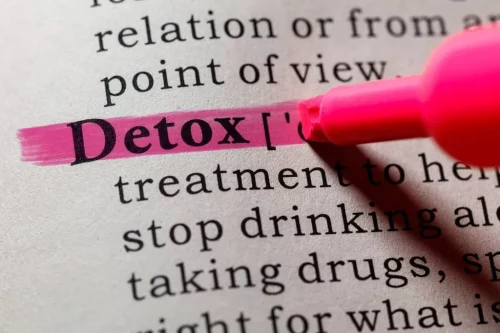
Alcoholic ketoacidosis is the buildup of ketones in the blood due to alcohol use. Ketones are a type of acid that form when the body breaks down fat for energy. If you need help creating a nutritional plan to help control your blood sugar levels, ask your healthcare provider for a referral to a registered dietitian. If a person does not have enough insulin, their body is unable to convert blood sugar to glucose, which the body uses as fuel. Without glucose to burn, the body enters a severe form of ketosis, releasing enough ketones into the blood that the ketones begin poisoning the person.

When to see a doctor
Free fatty acids are removed by the liver, where they primarily undergo oxidation to hydroxybutyric acid and acetoacetate and subsequently are reesterified to triglyceride. Decreased insulin and elevated glucagon, cortisol, catecholamine, and growth hormone levels can increase the rate of ketogenesis. If you have diabetes and smell acetone alcoholic ketoacidosis on your breath, make sure to follow your doctor’s treatment plan. Most of the time, this means taking insulin, a medicine to control your blood sugar and stop ketosis from happening.
What are the complications of alcoholic ketoacidosis?
- It most often occurs in a malnourished person who drinks large amounts of alcohol every day.
- Joining a local chapter of Alcoholics Anonymous may provide you with the support you need to cope.
- If not treated quickly, alcoholic ketoacidosis may be life-threatening.
- When your body can’t get energy from glucose, it burns fat in its place.
- DKA can cause the blood to become acidic and affect how the organs function.
Modern fad diets like ketogenic diets are designed to help your body enter a state of ketosis, where it begins burning fat rather than glucose (blood sugar) for fuel. This process releases chemicals known as ketones, including acetone, which can cause a fruity smell. In fact, having fruity or acetone-smelling breath is a reliable sign that your body has entered ketosis. The patient should have blood glucose checked on the initial presentation. The next important step in the management of AKA is to give isotonic fluid resuscitation. Dextrose is required to break the cycle of ketogenesis and increase insulin secretion.

What is Bigorexia disorder?
If your blood glucose level is elevated, your doctor may also perform a hemoglobin A1C (HgA1C) test. This test will provide information about your sugar levels to help determine whether you have diabetes. If a person is already malnourished due to alcoholism, they may develop alcoholic ketoacidosis. This can occur as soon as one day after a drinking binge, depending on nutritional status, overall health status, and the amount of alcohol consumed.
Complications and Prognosis of Alcoholic Ketoacidosis Smell

Read on to learn more about the connection between bad breath and diabetes. With timely and aggressive intervention, the prognosis for a patient with AKA is good. The long-term prognosis for the patient is influenced more strongly by recovery from alcoholism. The resulting increase in the NADH/NAD+ ratio inhibits hepatic gluconeogenesis and elevates the ratio of hydroxybutyric acid to acetoacetic acid.
- People can manage bad breath in many ways, including practicing good oral hygiene.
- Acetone is a type of ketone, and it is the same fruity-smelling substance found in some nail polish removers.
- Anorexia athletica (also known as Exercise Bulimia and Hyper gymnasia) is an eating disorder where people manage their caloric intake via obsessive compulsive over exercising.
- Gum diseases, including gingivitis, can cause bad breath, but not breath that smells like acetone.
- People living with diabetes may produce less saliva and experience dry mouth.
- Foods like onions or garlic or poor dental habits cause a strong odor in your mouth, which often gets better with simple lifestyle changes.
Diabetes may cause bad breath due to diabetes-related oral health conditions. DKA can develop if the body cannot produce or effectively use insulin to provide energy for cells. Instead, the liver breaks down fats for energy, producing ketones. Diabetic ketoacidosis (DKA) is a serious and potentially life threatening complication of diabetes. In some cases, fruity breath has causes that are not related to ketones. People with liver disease can Substance abuse experience fruity breath, but it’s a bit different.

Other causes of bad breath

AKA is one such complication that can arise from the toxic effects of alcohol. If you are diagnosed with alcoholic ketoacidosis, your recovery will depend on a number of factors. Seeking help as soon as symptoms arise reduces your chances of serious complications. Treatment for alcohol addiction is also necessary to prevent a relapse of alcoholic ketoacidosis. Your doctor may also admit you to the intensive care unit (ICU) if you require ongoing care.
- If you’re intentionally fasting or following a ketogenic diet, you should expect fruity breath.
- Eating disorders carry similar addictive behaviors as other types of addiction such as drug or gambling addiction.
- Diabetes happens when your blood glucose (blood sugar), a key energy source from food, is too high.
- This impairment may present with memory loss, personality changes, or a general decline in cognitive abilities.
Long-term management of alcohol abuse is essential to prevent further complications and improve the patient’s quality of life. Furthermore, alcohol impairs the normal functioning of the pancreas, which plays a crucial role in regulating blood sugar levels. Chronic alcohol abuse can lead to pancreatitis, inflammation of the pancreas, which further disrupts =https://ecosoberhouse.com/ glucose metabolism. Your doctor and other medical professionals will watch you for symptoms of withdrawal.
Symptoms of Alcoholic Ketoacidosis
Routine clinical assays for ketonemia test for AcAc and acetone but not for β-OH. Clinicians underestimate the degree of ketonemia if they rely solely on the results of laboratory testing. If you have diabetes, managing your blood sugars and taking your medications as prescribed can help reduce your risk of fruity breath. If you have diabetes and have glucose testing supplies on hand, check your blood sugar. If it is 240 mg/dL (milligrams/deciliter) or higher, use an over-the-counter ketone test kit to check your urine for ketones every four to six hours.
